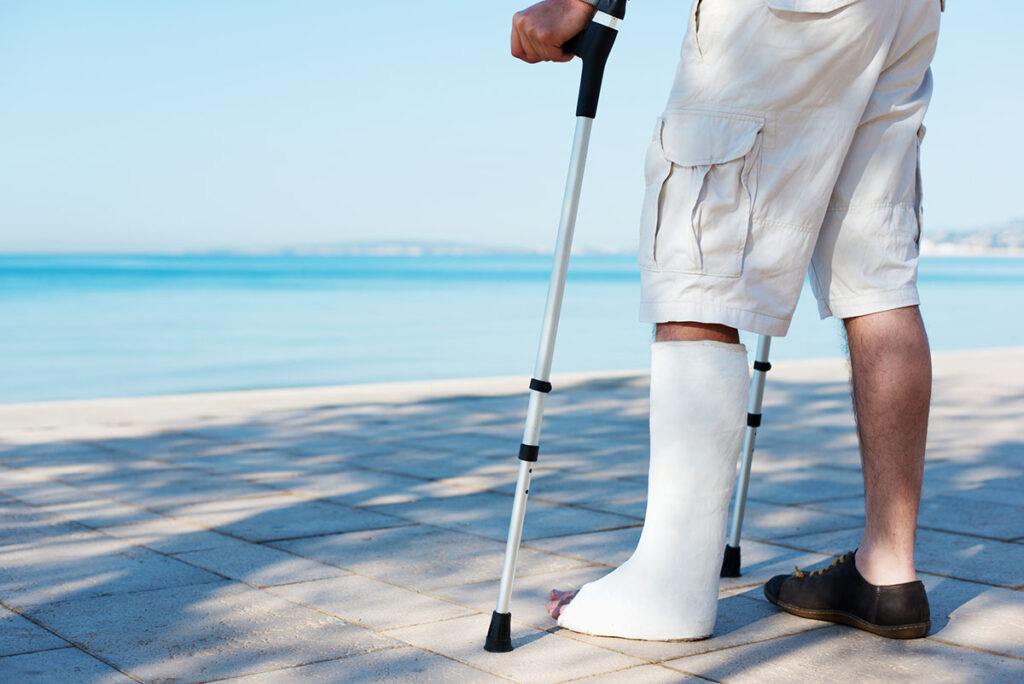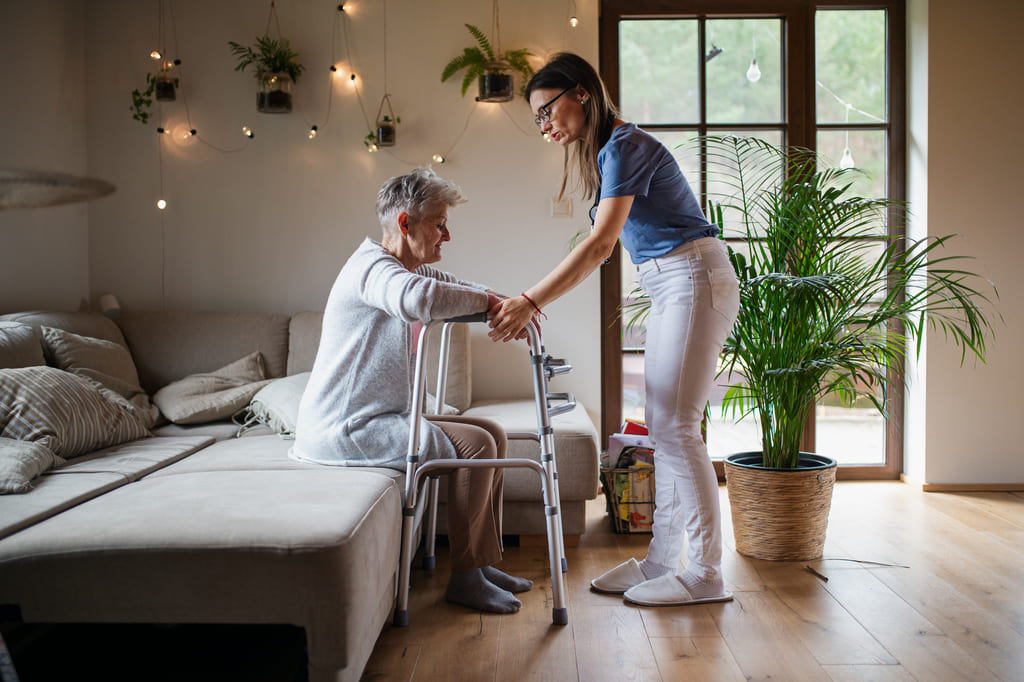What is After Hospital Care?
Leaving the hospital after you no longer need treatment or inpatient care is called a hospital discharge. However, a person’s access to care and support does not end after discharge. Reablement support, a type of after hospital care, is provided to people to help them re-learn skills needed for daily life and activities.
Whether you experienced an accident, injury or illness that required hospitalisation, you may need post-hospital care to get on track in your daily life. Before leaving the hospital, an individual undergoes discharge planning and an ongoing health evaluation.
The discharge team will design a tailored plan for the intermediate care and reablement services for the individual after a hospital discharge. The hospital staff will assess your physical condition, further support and living adjustments. Further support should be discussed with a family member or a caregiver that will look after you.
What Services Are Offered With After Hospital Care?

The type and duration of after hospital care depends on the individual’s recovery and need for additional care and support. In most cases, people receive short-term or intermediate care for 1 to 2 weeks. Intermediate care is designed to support independence, while reablement care includes helping people re-learn skills for independence.
The NHS provides free intermediate care for up to six weeks. If you need more extended post-hospital care, you might have to look for a private caregiver that provides home care services.
Below are the types of services that after hospital care offers:
- Personal Care
- Nursing Care
- Mental Health Support
- Safety and Mobility Support
- Shopping and Preparing Meals
- Taking prescriptions and observing general well-being
- Transportation to medical appointments
- Companionship and compassion
- Help with daily activities
A team of healthcare professionals design a treatment plan after hospital discharge. The recovery plan is created to ensure the fastest recovery possible and promote self-reliance. GP typically collaborate with district nurses in charge of care and support based on your area location.
District nurses provide an array of comprehensive care and support services to help you regain shape and live a quality and independent life, including:
- Pain and symptoms management
- Medication administration
- Intravenous therapy administration
- Wound cleaning and care
- Dressing, changing, bathing
- Nasogastric (NG) tube feeding
- Dietary arrangements
- Respiratory support
- Catheter management
- Advice and support to the family members and caregivers
Who Should Consider After Hospital Care?

After hospital care benefits people who have been discharged but still need transitional care at their homes.
The discharge plan may provide regular nursing staff visits, or live-in care, depending on your needs and requirements. After hospital care is beneficial for people with the following medical challenges:
- Bone fractures
- Physical injury or trauma
- Orthopaedic conditions and injuries
- Postoperative care
After hospital care is provided for a vast range of medical challenges, the duration of care depends on the type of support needed.
Care after hospital discharge helps people regain strength, mobility and cognitive functioning until they reach full recovery and independence.
The Goal of After Hospital Care
The goal of after hospital care is to provide care and support until the person feels better and self-reliant again.
After-hospital care ensures a person’s needs are met and fulfilled in the most humanised way.

Benefits of After Hospital Care
After hospital care creates the bridge between a professional hospital setting and rehabilitation in the comfort of your home, care at home provides all-encompassing help and support tailored to the needs of an individual.
Expert teams deliver multi-faceted healthcare treatments to optimise an individual’s recovery and ensure general well-being.
After-hospital care provides personal care assistance, medical support, well-being adjustments, companionship and household support so that people can feel safe and comfortable and focus on their recovery.
Personal Care Assistance
Personal care assistance includes support with daily activities such as maintaining personal hygiene, bathing, clothing, and preparing nutritious meals.
Nutrition and Medication Support
At-home nutrition support is provided for people who cannot make nutritious meals. District nurses can deliver nutrition through nasogastric tube feeding (NG) for people unable to intake nutrition orally. Medication can also be administered to ensure people needing care receive the right dose and support.

Support With Household Chores
Support workers can help with daily household chores, such as cleaning, vacuuming, or laundry. They can also help organise home modifications, such as bathroom grab rails.
Specialised Care
Before a person is discharged from the hospital, the home care providers compile a list of the person’s anamnesis, current physical and mental health, and other therapy to achieve a quality of life as optimal as possible. This is a care plan created by physicians, nurses, specialised medical professionals, and support workers.
Companionship
People who live alone might need companionship, empathy and emotional support to help people adjust to life after the hospital journey. Companionship service may also include playing the individual’s favourite games, shopping, or visiting social events.
Why People Are Choosing Home Care Instead of Prolonged Hospital Stay?
Managing the care journey after hospital discharge can sometimes be challenging for caregivers and the person discharged from the hospital. Surveys have confirmed that people tend to heal and recover faster and more restfully in the comfort of their homes compared to a hospital or rehabilitation centre.
Home care provides a feeling of independence and peace of mind, in addition to reducing expenses and the risk of potential complications.
How Leaf Complex Care Can Help You After Hospital Discharge
At Leaf Complex Care, we provide all-encompassing at-home care and support. We provide tailored care packages, including personal care, mobility assistance, medication administration, and unconditional emotional support.
We provide 24-hour assistance to people transitioning from a hospital to their home and community. We have a guaranteed rapid response service providing support at the right time and place. Our round-the-clock support for people with complex care needs is designed to meet all the needs of the individual in the most humanised way.
Our team of professionals use an active and proactive approach to ensure people’s physical and mental well-being in a family atmosphere. We ensure that all daily routines are in place and support people in daily activities like preparing meals, cleaning, and household chores.
For more details, contact our Leaf community. Our experts are at your convenience.


















